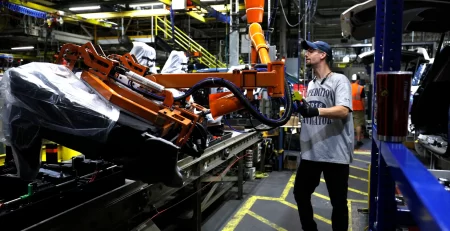Revolutionizing Real Estate: The Transformative Impact of Technology
The real estate industry, a fundamental pillar of the global economy, is undergoing a profound transformation fueled by advancements in technology. From property search to transactions and property management, technology has reshaped every aspect of the real estate ecosystem, enhancing efficiency, transparency, and accessibility. Let’s delve into the significant ways technology is revolutionizing the real estate industry.
1. Digital Property Search and Virtual Reality:
The traditional property search process has been revolutionized by online platforms and mobile apps. Prospective buyers and tenants can now explore properties remotely, thanks to high-quality images, 3D virtual tours, and virtual reality (VR) experiences. VR technology allows users to walk through properties from the comfort of their homes, offering immersive and realistic views of homes and commercial spaces.
2. Big Data and Predictive Analytics:
Big data analytics have empowered real estate professionals with valuable insights into market trends, pricing, and customer preferences. Predictive analytics algorithms analyze vast datasets, enabling real estate agents to anticipate market trends and make informed decisions. This data-driven approach enhances strategic planning for property development, investment, and sales.
3. Blockchain and Smart Contracts:
Blockchain technology ensures secure, transparent, and tamper-proof transactions in the real estate sector. Smart contracts, powered by blockchain, automate the contract process, reducing the need for intermediaries and minimizing the potential for fraud. This technology streamlines property transactions, accelerates the closing process, and enhances overall trust between buyers, sellers, and agents.
4. Property Management and IoT Integration:
The Internet of Things (IoT) has facilitated the integration of smart devices within properties, creating intelligent homes and commercial spaces. Property owners and managers can remotely monitor and control lighting, security systems, temperature, and appliances, optimizing energy efficiency and enhancing tenant experiences. IoT-enabled sensors also provide valuable data for predictive maintenance, ensuring properties are well-maintained and operational.
5. Crowdfunding and Real Estate Investment Platforms:
Technology has democratized real estate investment through crowdfunding platforms. Investors can participate in real estate projects with relatively small amounts of capital, diversifying their portfolios. Online investment platforms provide access to a wide range of properties and projects, enabling investors to make informed decisions and manage their investments efficiently.
6. Artificial Intelligence and Chatbots:
Artificial Intelligence (AI) and machine learning algorithms are revolutionizing customer interactions and property management. AI-powered chatbots handle customer inquiries, schedule property viewings, and provide relevant property information 24/7. Additionally, AI algorithms analyze customer preferences and behavior, enabling real estate professionals to offer personalized property recommendations, improving customer satisfaction and engagement.
7. Sustainability and Green Technology:
Technological advancements have paved the way for sustainable practices in real estate. Green technologies, such as solar panels, energy-efficient HVAC systems, and eco-friendly materials, are integrated into property designs, reducing carbon footprints and operational costs. Sustainable features enhance property value and appeal to environmentally conscious buyers and tenants.
In conclusion, technology’s impact on the real estate industry is transformative, ushering in an era of innovation and efficiency. As the industry continues to embrace emerging technologies, real estate professionals, property developers, and investors are well-positioned to adapt to changing market demands, improve customer experiences, and contribute to the evolution of sustainable and technologically advanced communities.











Leave a Reply